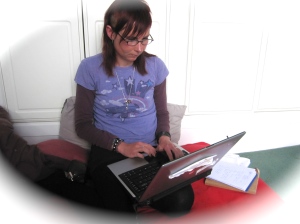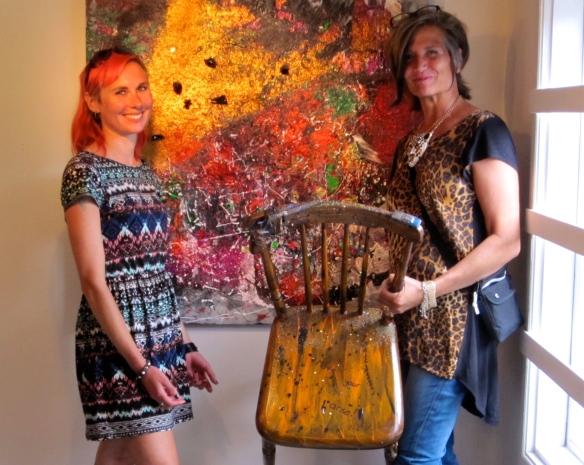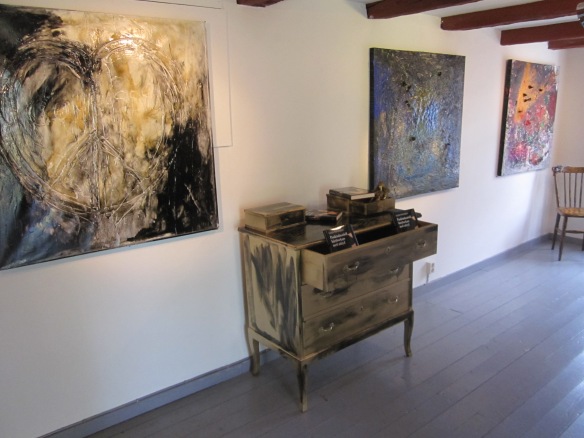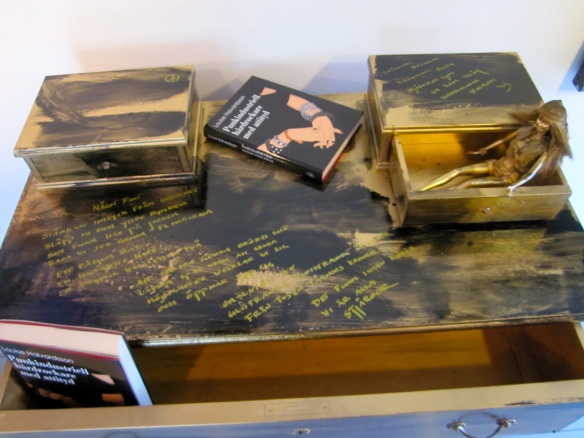
One insight I gained through the
Swenglish-project was that not everyone wants to become a bestselling author or a rock star. There are people who dream about becoming archeologists, lawyers and land-surveyors. And there are people who don't even have a dream job in mind.
Jobs that People in England Dreamed About
Author is very popular after all. 9 of 15 participants in England wanted to work with writing, but only 2 of 9 answered novelist - the remaining 7 also wanted to work as journalists, poets or combine their writing with running creative/spiritual workshops. The ones who didn't dream about writing wanted to do comedy, make clothes, work with film animation and being part of a team that developed new apps.
Most people were pursuing their dream to some extent (even though they didn't make much money from it), but only one person answered that she already had her dream job: being able to make art, creating in different ways - just wishing for her own studio. And one person didn't have an answer; once upon a time she wanted to become a West End stage girl, but realised that she needed to use her brain a bit more and started to study biology.
Jobs that People in Sweden Dreamed About
Among people in Sweden only 3 of 15 people picked writing (in different genres/combinations) as a dream job. Someone wanted to make music and affect people politically, another wanted to "do something creative that is positive for society" and a third wanted to make art in a massive studio - "the world's biggest toy house". Apart from that the dream jobs were more tangible: librarian, lawyer, archeologist, interior design communicator, land-surveyor and union rep. They already worked or studied within these fields, but had different dreams relating to their job/career: they wanted to move forward and develop themselves.
The remaining three people didn't have any specific dream jobs. One of them (an admin worker) described herself as a restless person who slipped back and forth and had to find new things and constantly challenge herself, but the other two (a carer and shop worker) expressed that they had never had any big ambitions or occupations they were attracted to. Something I - who live in the world of dreams - find hard to grasp.
Artistic versus Traditional Dream Jobs
Looking at my little study it turns out that people in England had more creative/artistic dream jobs in mind than people in Sweden; the Swedes were more focused on traditional/tangible jobs, but I don't want to state that as a truth in any way. I think that's more to do with the fact that my network in England - and above all in Brighton - is different to my network in Sweden.
My own Dream Job
My own dream job is and has always been to become an author, but the dream has taken different shapes over time. When I was around 20, I wanted to write novels 24 hours a day and isolate myself from the world. I don't want that anymore. Now my dream is more abstract: I want to write in different genres. Everything from creative non-fiction to writing for stage. And like most other creators I'd like to make my whole living from my writing. But I'm not prepared to stick to one genre and "produce" one book a year.
Author AND ?
I've also realised that there are people who are authors AND teachers or authors AND psychologists or authors AND cultural workers. That they are happy with that and want it that way. For me that's a new new thought. (I mean it's unusual that someone has two demanding "brain jobs" at the same time for example doctor AND computer programmer). I've always believed that if you're an author you can only be an author and if you don't make enough money from it you can only do "unqualified" jobs like shop assistant, cleaner or waiter - jobs that don't demand too much brain power and gives you time to think about the writing while you're "day working". But it's also possible that a more "qualified" job can give you inspiration and feed the writing, that you become more specialised within one subject and gain "free research". At the same time "an ordinary day job" can be inspiring and make you write out of frustration.
Work Less
It's hard to know what works best, but slipping back and forth, finding new things and challenging yourself, as one of the project participants said, seems to be a good strategy. And I've always been a fan of working LESS. If everyone worked part time and consumed less and lowered their standard I think we would have a happier society. (There's a movement that has raised the question about
unconditional basic income.)
The picture of me is taken by the 3-year old in the family I stayed with during project week 12.
This study is by no means scientific, the answers are based on interviewing 15 people in England and 15 people in Sweden, aged 22-59. Look out for the next question: What would you like to study if you had the chance?







